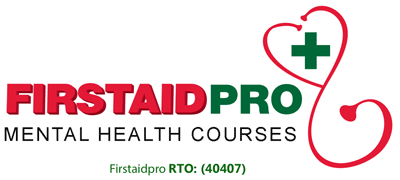De-escalation Techniques in Mental Health Settings

De-escalation skills are vital for people who have to deal with challenging behaviors. To meet these challenges, anger management is very important.
Uncontrollable anger is often associated with mental ill-health. Learning de-escalation techniques is the best way to intervene to control that aggression. It reduces agitation among individuals who are becoming aggressive. Before we discuss de-escalation techniques, here are some main points you should take note of.
- Popular de-escalation strategies include communication and empathy
- Aggression and violence among patients are often a sign that a person is in extreme distress, fear, or frustration
- A person who is enraged does not listen to logical reasoning
- Empathy and effective communication are the keys to de-escalating a mental health crisis
The LOWLINE model has been used by professionals and workers in the healthcare field in de-escalating anger and violent situations. LOWLINE stands for Listen, Offer, Wait, Look, Incline, Nod, Express.
Listen
Use active listening. That’s because it is important for a person suffering from a mental health crisis to have a safe space where they can freely express themselves.
Offer
Offering them choices based on what you have heard helps add to a sense of hope as well as deflecting their anger.
Wait
Each person has their own emotional timeline. So wait until the person is ready to open up to explain their frustrations.
Look
As much as possible, maintain appropriate eye contact to show that you are sincere in helping them. Look for connections between you and the person to establish the feeling of ‘trust’ and ‘respect’.
Incline
Incline your head slightly in a non—threatening posture to show that you are actively listening, accepting, and non-judgmental to whatever the person has to say.
Nod
Nodding is a way to show that you are listening and fully comprehending the context of what the person has said. It suggests empathetic listening which is a very important anger de-escalation technique.
Empathy
From the victim’s perspective, it helps if the person helping them is showing empathy. That’s because it shows that you care and understand what they are going through.
These techniques may help the person in the current state of aggression and violence to feel calmer. Remember that the only way you can attend to their issues is when they are calm and listening to logical reasoning.
De-escalation techniques have positive results. That includes preventing violent behavior, avoiding the use of restraints and maintaining the safety of everyone.
How can I learn more?
Interested in building your knowledge in anger de-escalating techniques, or mental health in general? First Aid Mental Health Australia is ready to help you. Mental Health First Aid Course is readily available and will help you recognise the signs and symptoms of mental illness. So, learn how to identify and respond to a mental emergency by attending one of our training courses.
